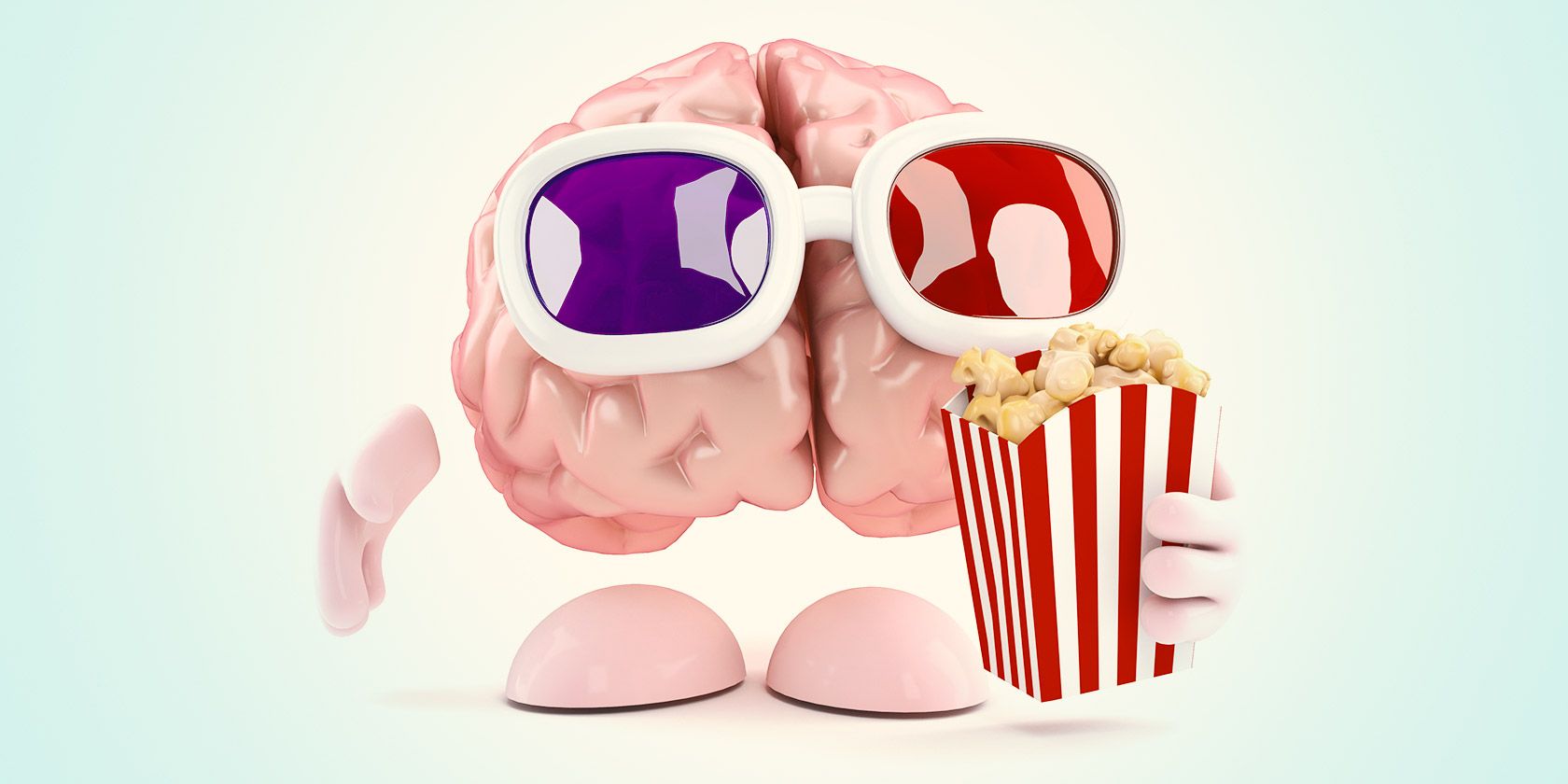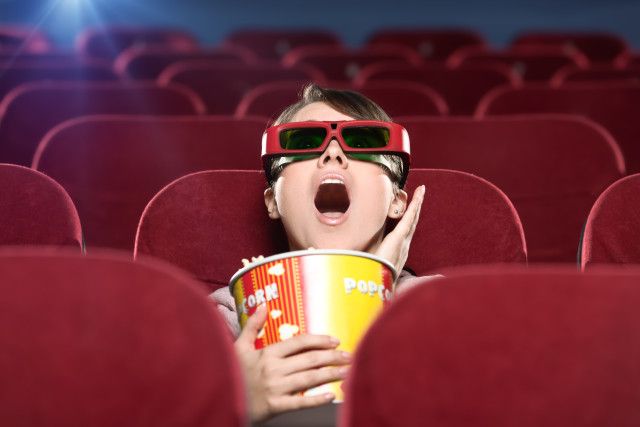According to a recent study, you might be able to boost your brain power by doing something as simple as watching a 3D movie. Which, correct me if I'm wrong, is a more entertaining activity than 99.9 percent all activities out there. Especially if there are snacks involved.
To 3D or Not To 3D
3D movies have been lauded because of their ingenuity, artistry, and innovation. However, this style of movie has also received a lot of criticism for being "gimmicky," and for making audiences feel (paradoxically) less immersed in the movie they are seeing.
There are valid arguments to be made on both sides of this debate, which has been ongoing since 1903, when the first 3D technologies appeared in cinemas. However, if 3D movies can boost brain power like this study suggests, they may become invaluable in rehab situations, brain games, teaching strategies, and in preventing age-related decline in cognitive functions and the onset of symptoms of dementia.
A renewed interest in 3D might serve as a needed boost for struggling movie theaters across the globe. And, bonus! This would be a great excuse to give when you get caught watching a movie when you're supposed to be studying for an exam or preparing for a big work project.
How the Study Worked
The study, conducted by neuroscientist Patrick Fagan and Professor Brendan Walker (of Thrill Laboratory), served two purposes: to measure differences in audience engagement between 2D and 3D movies, and to measure the differences in audience cognitive changes between 2D and 3D movies.
This study had two sample groups - one group watched a clip from the movie Big Hero 6 in 2D, while the other group watched the same clip (featuring the last battle seen in the movie) in 3D.
Researchers administered a large variety of cognitive tests to all participants both before and after they watched the clip. The majority of these tests were standardized ways of measuring cognitive functions such as memory, attention, processing speed, and grammatical reasoning. All participants also wore sensors that measured brain activity levels in 14 different areas of the brain while watching the clip.
The Study's Promising Results
Participants' performance on the cognitive tests showed that both those who watched the film clip in 2D and those who watched in 3D had significant improvements in their cognitive functioning abilities.
However, while the 2D group's cognitive processing score improved by 11 percent, and their reaction time score by 2 percent, the 3D group's cognitive processing improved by 23 percent, and their reaction time by 11 percent.
Not only that, but the brain activity level results demonstrate that 3D viewers were 7.3 percent more emotionally engaged with the video clip than participants who watched the clip in 2D.
The results show a clear cognitive benefit to those who watched the clip in 3D, and these results are incredibly exciting for both the film industry and neuroscience research.
While these results were only confirmed to last for 20 minutes after viewing, the clip itself was only a few minutes long - so it's conceivable that longer 3D exposure could lead to stronger (and longer lasting) effects.
Let's Not Get Ahead of Ourselves…
With all this being said, it is important to take these findings with a proverbial pinch of salt for a couple of important reasons. And maybe hold off exchanging your textbook for a trip to the cinema for the time being.
One issue with this study is that some of the improvement in the cognitive testing performance can likely be explained by what's known as the "practice effect". While cognitive tests are set up so that you can't memorize the answers for the next time you take the test, participants did prime their brains to complete these cognitive tasks (especially since the two rounds of testing were just a short time apart).
Another issue with the study is that it was funded by a cinema chain (Vue Cinemas), and so there's a high potential for a conflict of interest when it comes to the study's design and interpretation.
Lastly, there was no comparison of the results from movie watchers and another kind of cognitive stimulation. It's great that 3D movies improve brain power more than 2D, but how do they stack up against video games, music, or even the simple act of going for a walk?
Are 3D Movies Here to Stay?
A lot of people have written 3D movies off as a "fad" that won't have any staying power, but I think that their continued popularity after over more than 100 years suggests otherwise.
Certainly, there have been ebbs and flows in their popularity over the last century: this amazing graph gives a great visual representation of the popularity of 3D over time.
In the past, it has often been the expense and frustrations that come with new technologies that has caused 3D films to fall out of favour with the general public, but the recent boom in advanced technology and film-making techniques may be affording 3D movies their biggest cultural impact yet.
For the first time in history we are also able to access amateur 3D videos created on YouTube, and high-quality visuals on 3D television sets at home. 3D movies are no longer limited to being shown at the movie theater, and this might be what allows them to remain popular in the coming years.
If 3D movies do stand up to further research and demonstrate significant impacts on a diverse number of cognitive functions, their impact could spread even further.
It's not just that watching a 3D movie may boost productivity, reaction time, or intelligence, it's that the qualities that make 3D movies have this impact on the brain could be coupled with existing brain-strengthening strategies to maximize the potential of both interventions simultaneously.
If future studies prove this pilot study correct, these results may transform neuroscience's approach to using video in many different cognitive interventions, change our approach to educational materials, and help the cognitive performance of movie buffs everywhere.
3D Movies in Everyday Life
While we wait for science to come to a consensus, you might as well watch some of the best 3D movies that are worth watching in 3D (purely for scientific purposes, of course). It's also worth noting that if you really want a guaranteed brain boost you should probably go for a walk to help your brain health as well.
How do you feel about 3D movies? Are they a passing fad, an incredible art form, or somewhere in-between - I'd love to hear your thoughts in the comments section below!
Image Credits: brain eating popcorn via Shutterstock; Shocked Young Woman With Popcorn via Shutterstock; Woman in Armchair watching TV via Shutterstock



